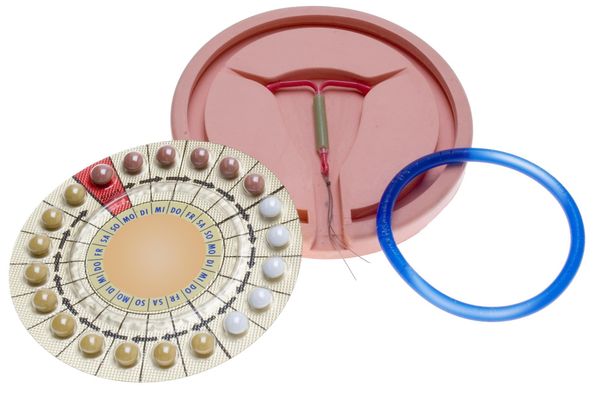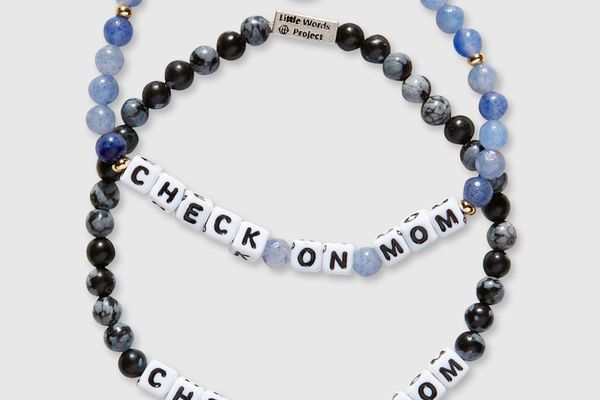Recent Survey Highlights Knowledge Gap About Treatment Options
Red Bank, N.J. and Rosemont, PA—HealthyWomen, the nation's leading independent, nonprofit health information source for women, along with Duchesnay USA, a specialty pharmaceutical company with a long-standing commitment to women's health, today announced the results of a survey* evaluating the experience of postmenopausal women with one of the most common and troubling symptoms of menopause: painful sex.
The survey, sponsored by Duchesnay USA, was conducted among 832 women aged 45 years and older and 305 women's health care providers (HCPs). Findings suggest that women are not well-informed about painful sex due to menopause. It underscores the importance of women sharing their symptoms with their health care providers for proper treatment and to prevent symptoms from worsening.
Key Survey Findings:
Among 553 respondents, 73% were still sexually active after menopause.
Among 555 respondents, 62% were experiencing pain during intercourse.
Among 335 respondents who rated frequency of pain, 83% reported experiencing pain in half or more instances of sexual activity with 73% rating the pain moderate to severe.
Almost 60% of 337 menopausal women respondents had never discussed their painful sex with a health care provider while, in contrast, 83% of 266 HCP respondents claimed to often or always discuss pain during sex with their menopausal patients.
Among 308 respondents, 69% did not know that the painful sex they were experiencing is treatable.
"Women's health is a topic that is often in the headlines, yet menopause is still an under-discussed stage of life, especially when it comes to lesser-known symptoms and impact on a woman's sexual health," said Barb Dehn, NP, and member of the HealthyWomen Women's Health Advisory Council. "These findings show the need for improved communication between women and their HCPs, as well as general condition and treatment options awareness so women can lead fulfilling sex lives, pain-free."
The survey also gave some insight into how women were electing to cope with painful sex. Among 314 respondents, 33% were avoiding sex altogether, and 45% were resorting to lubricants to manage pain.
While certain methods such as lubricants can provide temporary relief, these do not treat the underlying condition. A number of prescription therapies, including hormone-free oral tablets, are available to specifically treat moderate to severe painful sex due to menopause.
For more information on the survey: healthywomen.org/painfulsex
* This survey titled "What Do You Know about Your Sexual Health After Menopause?" was conducted within the United States by HealthyWomen in partnership with Duchesnay. It was conducted online from December 4, 2017, to March 18, 2018, among 832 women ages 45 and older and 305 women's health care providers.
About Dyspareunia (painful sex)
Before menopause, estrogen, the primary female sex hormone, helps maintain the thickness and elasticity (stretchiness) of vaginal tissues. However, as women age, estrogen levels drop, causing changes in these tissues. These changes can lead to a medical condition called vulvar and vaginal atrophy (VVA), which can lead to painful sex. Left untreated, painful sex due to menopause can worsen. Dyspareunia is a common postmenopausal condition, with as many as one in three postmenopausal women experiencing pain during intercourse.
About HealthyWomen
HealthyWomen is the nation's leading independent, nonprofit health information source for women. Our mission is to educate and empower women to make informed health choices for themselves and their families. For 30 years, millions of women have turned to HealthyWomen for answers to their most personal health care questions. HealthyWomen provides objective, research-based health information reviewed by medical experts to ensure its accuracy.
Nothing is more important to our health than access to competent care and the safety of our medicines and our health care practices. HealthyWomen works to educate women about health policy issues in these and other areas. We recognize the importance of clinical trials to improving women's health and support women's health research, particularly where sex may make a difference in research results. HealthyWomen advocates on behalf of women to ensure that women's health is a primary focus by policy makers and advocacy groups. Our investment in developing science-based information and our effort to incorporate perspectives reflected by advances in research and technology will further our mission to provide women with relevant and accurate health resources. For more information, please visit HealthyWomen.org.
About Duchesnay
Duchesnay USA is a specialty pharmaceutical company with a long-standing commitment to women's health. The company focuses on filling the void in terms of scientific research and education and on developing pharmacological solutions that are safe and effective for use during pregnancy and breastfeeding. Duchesnay USA also commercializes a broad portfolio of products to offer safe and effective therapeutic options that meet the health and quality of life needs of women and their family members at various stages of their lives. For more information, visit www.duchesnayusa.com.
Media Contacts:
Healthy Women
Lisa Meindel
202-271-8884
lisa@healthywomen.org
Duchesnay
Fiona Story
877-833-7734
fstory@duchesnay.com
References:
Davis SR, Lambrinoudaki I, Lumsden M, et al. Menopause. Nat Rev Dis Primer. 2015; 15004. doi:10.1038/nrdp.2015.4.
Freedman MA, Kingsberg SA, and Portman DJ. Dyspareunia Associated with Vulvovaginal Atrophy: Innovations in Counseling, Diagnosis, and Management. Supplement to OBG Management. 2018: S1-24.
Krychman M, Graham S, Bernick B, et al. The Women's EMPOWER Survey: Women's Knowledge and Awareness of Treatment Options for Vulvar and Vaginal Atrophy Remains Inadequate. J Sex Med 2017; 14: 425‐433.
Simon JA. Vulvovaginal atrophy: What is it, what causes it? OBG Management. 2015;(suppl):1-2.
Wurz GT, Kao CJ, DeGregorio MW. Safety and efficacy of ospemifene for the treatment of dyspareunia associated with vulvar and vaginal atrophy due to menopause. Clinical Interventions in Aging 2014:9 1939–1950.
What Do You Know About Your Sexual Health After Menopause? Healthy Women website. healthywomen.org/painfulsex Updated May 2018.
Wysocki S, Kingsberg S, Krychman M. Management of Vaginal Atrophy: Implications from the REVIVE Survey. Clin Med Insights Reprod Health 2014; 8:23-30.
HealthyWomen. Data on File.






